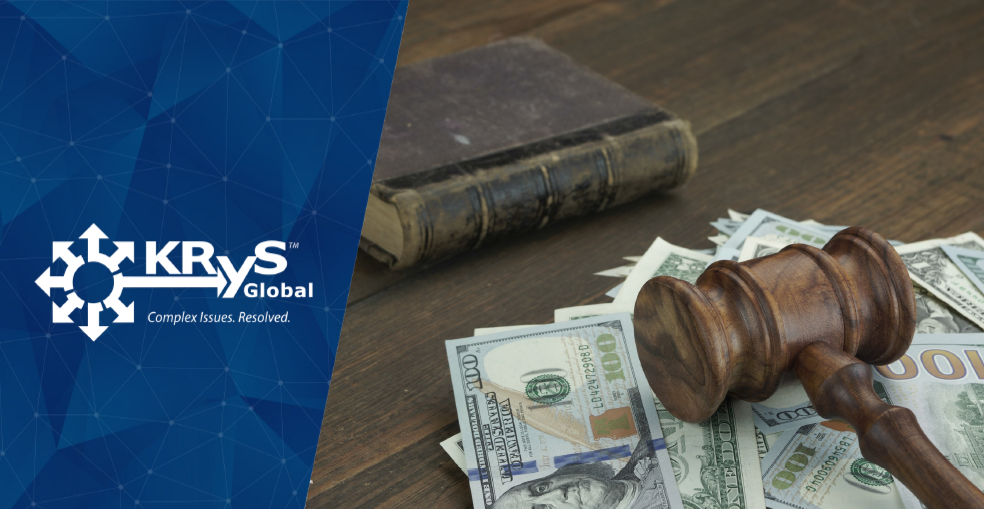Safe harbour blocks foreign common law claims in Ch15, Second Circuit affirms

Originally posted on GRR
The US Bankruptcy Code’s safe harbour provisions bar foreign common law claims in Chapter 15s, a US appellate court has affirmed, in what lawyers working on a long-running case related to the Madoff fraud tell GRR is a “groundbreaking” decision.
On 5 August, the US Court of Appeals for the Second Circuit dismissed constructive trusts claims brought in a Chapter 15 case under British Virgin Islands common law by Krys Global’s Kenneth Krys and Greig Mitchell, the liquidators of the Fairfield funds – former “feeder” investors in Bernie Madoff’s Ponzi scheme.
The appellate court found that the safe harbour provisions of the US Bankruptcy Code directly bar bankruptcy trustees from pursuing avoidance actions, whether under US statutory or common law, foreign statutory law, or non-US common law under Chapter 15. The provisions stipulate that bankruptcy trustees may not pursue avoidance actions against payments made to “financial participants”, unless they were made with the “actual intent” to hinder, delay or defraud creditors.
The Second Circuit’s decision reverses rulings from the Southern District of New York bankruptcy and district courts that found the safe harbour provisions barred avoidance claims under the BVI’s statutory insolvency laws, but there was no express language in the US Bankruptcy Code preempting constructive trust claim sunder BVI common law.
A team from Freshfields in New York that submitted a brief to the Second Circuit on behalf of the US securities industry trade association SIFMA says the decision “eliminates an anomaly” where certain claims would be barred by safe harbour if asserted under a US state’s common law, but not barred if under non-US common law. Freshfields partners David Livshiz and Madlyn Gleich Primoff and counsel Henry Hutten describe the court ruling as “groundbreaking” and “a significant contribution to emerging Chapter 15 jurisprudence”.
“The consequence of the decision is that both liquidators and defendants will want to scrutinise the facts applicable to avoidance actions that can potentially be asserted under non-US law to see whether the transactions at issue fall plainly within the safe harbour or whether it is possible to structure claims to circumvent the application of the safe harbour,” they tell GRR.
The Fairfield funds were a collection of Madoff feeder funds that were forced into liquidation in the British Virgin Islands when the Ponzi scheme came to light in 2008.
Their liquidators subsequently brought around 300 separate actions in the US to recover more than US$6 billion in share redemption payments made to investors in the funds shortly before the scheme was exposed.
After the liquidators obtained Chapter 15 recognition in 2010, the 300 actions were consolidated before the US Bankruptcy Court for the Southern District of New York.
Many of the actions were subsequently dismissed on the grounds that the New York court lacked personal jurisdiction over the defendants, or because the liquidators were bound by Net Asset Value calculations that set the price at which the defendants redeemed their shares in the funds.
The liquidators’ BVI statutory insolvency claims were thrown out on account of the safe harbour provisions in December 2020. The bankruptcy court let the constructive trust claims remain, however, against certain defendants that allegedly knew or had reason to know the Net Asset Value calculations for their shares had been inflated as a result of the Madoff fraud.
On appeal, the Second Circuit reversed the bankruptcy court’s findings on personal jurisdiction, but upheld the application of the safe harbour provisions, extending them to bar the constructive trust claims too.
Fairfield’s liquidators argued that applying the safe harbour provisions extraterritorially violated the presumption against extraterritoriality in US law.
But the appeal court found the US Congress had expressed a clear intent to apply the safe harbour provisions extraterritorially through the explicit stipulation at section 561(d) of the Bankruptcy Code that they “shall apply in a case under chapter 15”.
Agreeing with the district court, the Second Circuit judges said the liquidators were seeking to have it both ways – “benefiting from the domestic forum Chapter 15 has created for foreign law claims as a matter of comity while trying to avoid the limitations that Chapter 15 imposes on their power to bring these claims”.
“It is similarly implausible that Congress intended to allow a foreign debtor and its representative to take advantage of US bankruptcy law to bring avoidance actions unconstrained by the safe harbour that applies to the avoidance actions of a domestic trustee or debtor-in-possession,” the Circuit judges added.
Krys, who has overseen the liquidation of the Fairfield funds since their collapse, confirms that the 5 August decision has now wiped away all the 300 claims.
He says the decision has “very broad implications” that extend a law initially put in place to protect US financial markets extraterritorially and that his team is talking to legal counsel about whether there is merit to appeal.
“There seems to be an inconsistency. Chapter 15 was initiated to facilitate foreign liquidators to be able to do things in the US, whether it is getting discovery, whether it is getting access to assets,” Krys notes. “Yet what we have is a safe harbour provision that, because you came in under Chapter 15, you are now not able to pursue the parties including those that we say knew about the fraud and were willfully blind to the fraud… It doesn’t necessarily make sense.”
“The Supreme Court might find that an interesting conflict to resolve,” he adds.
